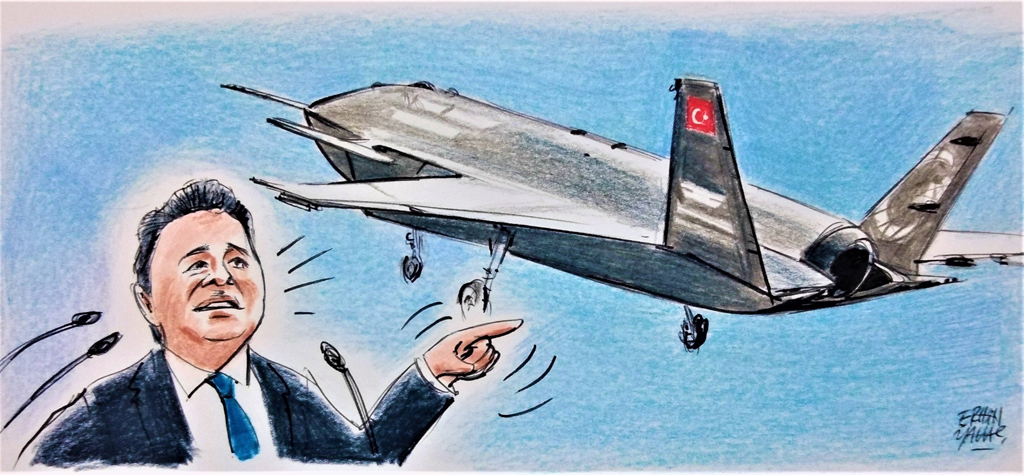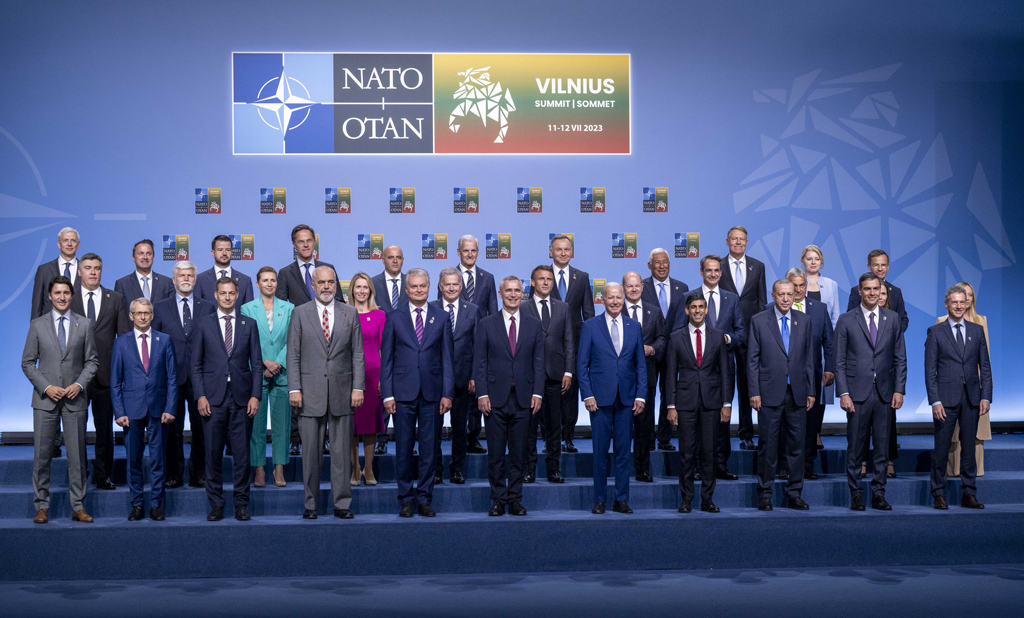Ali Babacan, who chairs the Democracy and Progress Party (DEVA), has been making surprisingly different statements from other opposition leaders, which formed the opposition bloc known as the "table for six."
Initially, he recommended the legalization of religious communities, the amendment of the definition of Turkish citizenship and the recognition of Kurdish as a native language. More recently, he has been talking more and more often about
running for president as the opposition bloc’s joint candidate. Finally, Babacan questioned the accomplishments of Türkiye’s defense industry.
He complained about the “lack of competition” against Baykar’s armed drones, which, global media outlets say, have changed the course of wars. He also threatened to “touch” Baykar, arguing that the company’s defense projects were “among the most important propaganda (materials) at the government’s disposal.”
The Republican People’s Party (CHP) and the Good Party (IP) distanced themselves from that
line of criticism. However, Babacan seems to try and target the government’s sources of good news: national defense, energy and technology. In other words, he aims to deprive President Recep Tayyip Erdoğan of his ability to set the nation’s agenda with good news.
To be clear, CHP politicians had unsuccessfully attempted to do the same thing. Taking aim at success stories that serve Türkiye's interests, however, ultimately hurts the opposition itself.
Babacan’s most recent statements added a new problem to the state of chaos unleashed by another opposition leader’s remarks on party leaders exercising “as much power as the president.”
That a politician, who stresses common policies more than any other opposition leader, distinguishes himself so blatantly highlights yet another problem with the opposition bloc: it is unclear where their partnership begins and differences end.
Aren’t common policies supposed to be endorsed by the presidential candidate and the six opposition parties? And what about each party’s own policy preferences? For example, for whom are DEVA’s most recent comments on revolutionary laws and the Kurdish language binding?
AK Party will benefit from opposition's delay
At this point, the ruling Justice and Development Party (AK Party) stands to benefit from the opposition’s excessively lengthy process of adopting common policies and endorsing
a joint presidential candidate. In addition to highlighting his administration’s steps to tackle the cost of living, President Erdoğan taps into the dispute over power-sharing among opposition leaders to criticize them. That is why the People’s Alliance is not unhappy with the opposition bloc’s decision to delay the selection of a joint presidential candidate until the election timeline becomes clear.
For the record, they are absolutely not nervous.
Quite the contrary, the ruling party has been taking the time to strengthen its hand until everyone picks their candidates and the campaign actually kicks off. At the same time, the many steps that the government has taken to assist low-income citizens have created a positive atmosphere that serves the ruling party’s interests. Furthermore, the kinds of perceived chaos encourage undecided voters to support President Erdoğan.
Primarily, there is the idea that the uncertainties and chaos in the international system call for a strong leader like Erdoğan. More and more people seem to agree that the Turkish president successfully leveraged ongoing crises to transform Türkiye into an active player in international diplomacy amid the Russia-Ukraine war. In this sense, Babacan has not been targeting those achievements randomly.
Secondly, there is the perception that the administrative model of the opposition bloc, which pledges to put multiple people in charge, sends a negative message to the people. In this sense, the "
table for six" fuels the perception that it cannot govern the country – irrespective of the name of its presidential candidate.
Joint candidate issue
I believe that unveiling common policies – like the joint endorsement of the "augmented" parliamentary system – won’t seriously improve the opposition bloc’s chances in the upcoming elections. It does not really matter how they intend to manage the transition process either.
The presidential candidate’s profile and their ability to inspire hope among voters are the main points. The opposition circles hope that the selection of a joint presidential candidate will fuel excitement and synergy.
Yet it will be harder than imagined for the "table for six" to undo the current perception of chaos. The possibility of the joint presidential candidate not really exciting anyone, mainly due to the excessive amount of time spent picking the name, could prove to be the opposition’s biggest problem in the end. That, in turn, would help Erdoğan further increase his support to claim a first-round victory.
Moreover, it is important to note that the accusations, which become public amid the race among presidential hopefuls, won’t just vanish into thin air once the opposition picks a joint candidate. As such, the People’s Alliance will have plenty of opportunities to question whether the opposition parties actually agree on their supposedly common policies and candidate.
Nor will the various parties stop competing against each other to claim parliamentary seats – even if they work very hard on joint lists of candidates. Babacan’s controversial statements, which differed from the rest of the opposition leaders, immediately come to mind.
[Daily Sabah, January 19 2023]








